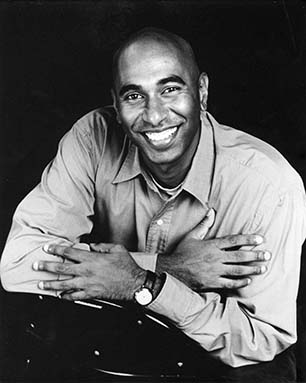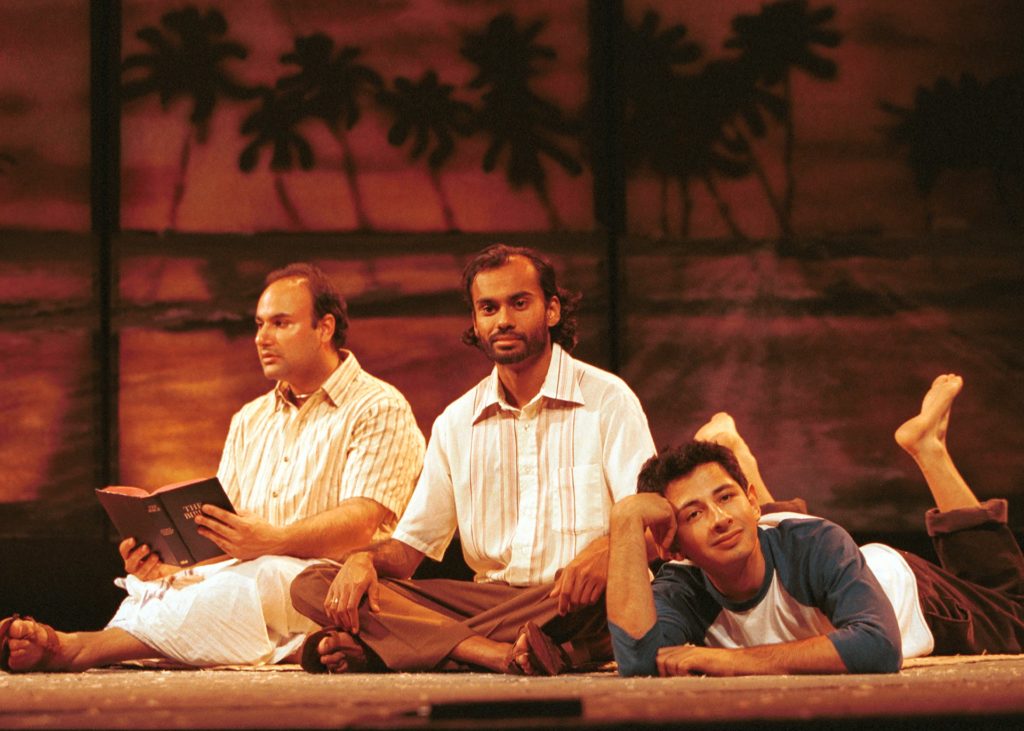
Biography
A Canadian of east Indian descent, playwright Sunil Kuruvilla began writing as a child, winning two United Nations’ literary awards for his short stories. His plays include BULLDOGS AND FIRETRUCKS (1994), EARS TO GLASS, GLASS TO GROUND (1996), FIGHTING WORDS (2003), MINUS 1 (2001), SNAPSHOT, AND NIGHTOUT. He is most noted for his play Rice Boy, which was a shortlisted finalist for the Governor General’s Award for English-language drama at the 2003 Governor General’s Awards. His work has been developed and produced most notably at The Yale Repertory Theatre, The Actor’s Gang, Factory Theater, Canadian Stage, Stratford Festival, and Toronto Fringe Festival. He is most noted for his play Rice Boy, which was shortlisted finalist for the Governor’s General’s Award for English-Language drama at the 2003 Governor General’s Awards. He also received two duMaurier Arts awards recognizing Canada’s best one act plays. He received his M.A from The University of Windsor and a M.F.A degree from Yale University.
Career Highlight
Winner of Shaw Festival competition with his play Fight of The Century
Rice Boy
- Breakdown:
- 6M Indian
- 1M Canadian-Indian
- 1M German
- One actor can play Fish Seller, Clerk, Umbrella Man, and Nut Seller
- One actor can can play Mr. Harris and Mennonite Farmer
- Synopsis:
- Rice Boy looks at the experience of Tommy, a 12 year old who was born to Indian parents who immigrated to Canada where he grew up. Tommy struggles to adjust to every aspect of Indian culture when he visits his extended family and only finds comfort in his friendship with his cousin Tina. Tommy questions every aspect of his heritage, identity, relationship with family, and is left feeling lonely and confused.
- Development/Production History:
- Rice Boy was first staged by the Yale Repertory Theater in 2000 while Kuruvilla was a student there, and received a production in Los Angeles by The Actors’ Gang in 2001.
- Purchase play here.
- Photos:


- Plays
- Bulldogs and Firetrucks (1994)
- Ears to Glass, Glass to Ground (1996)
- Rice Boy (2000)
- Minus 1 (2001)
- Fighting Words (2003)
- Snapshot (2002)
- NightOut (2007)
- Bibliography
- Jones, Kenneth. “Rice Boy, a Play about ‘Cultural Inheritance,” Opens at Stratford Festival.” Playbill, 22 Aug. 2009, https://www.playbill.com/article/rice-boy-a-play-about-cultural-inheritance-opens-at-stratford-festival-com-163755.
- Taylor, Markland. “Riceboy.” Variety, Variety, 26 Oct. 2000, https://variety.com/2000/legit/reviews/riceboy-1200464584/.
- Critic, MALCOLM JOHNSON; Courant Theater. “Fragmented `Rice Boy’ Drifts Too Far.” Hartford Courant, 2 Sept. 2021, https://www.courant.com/news/connecticut/hc-xpm-2000-10-27-0010270920-story.html.
- ” Contemporary Authors. . Encyclopedia.com. 25 Apr. 2022 .” Encyclopedia.com, Encyclopedia.com, 26 Apr. 2022, https://www.encyclopedia.com/arts/educational-magazines/kuruvilla-sunil.
- Web Resources
- Interview with Playwright (Stratford Festival Interview)
- Sunil Kuruvilla’s author page on Encylopedia.com (Weblink)
- Sunil Kuruvilla Wikipedia
- Play production Website
Reflection on Contribution to Anti-Racist Theatre
Playwright Sunil Kurvilla does an incredible job of using characters, language, and story in his play Rice Boy to create a theatrical world that expands our understanding of those sandwiched between two different cultures. Rice Boy takes its audience on a journey to Canada and India through a series of fleeting moments exploring the intense challenges the main character Tommy faces in trying to make sense of it all where he fits in. The play sheds light on various interesting aspects of Indian culture such as food, relationship between parents and children, superstitions, and how challenging it could be for an individual to immerse themselves in such an environment hailing from a different background. Sunil Kuruvilla puts the audience in the driving seat and makes them contemplate how they would adapt to such an unfamiliar environment. Rice Boy inspires people to understand and empathize with people who are different from them, especially when they are adjusting to a new environment.
Vaibhav Mopidev, Business Analytics and Film, Television & Theater, Class of 2022